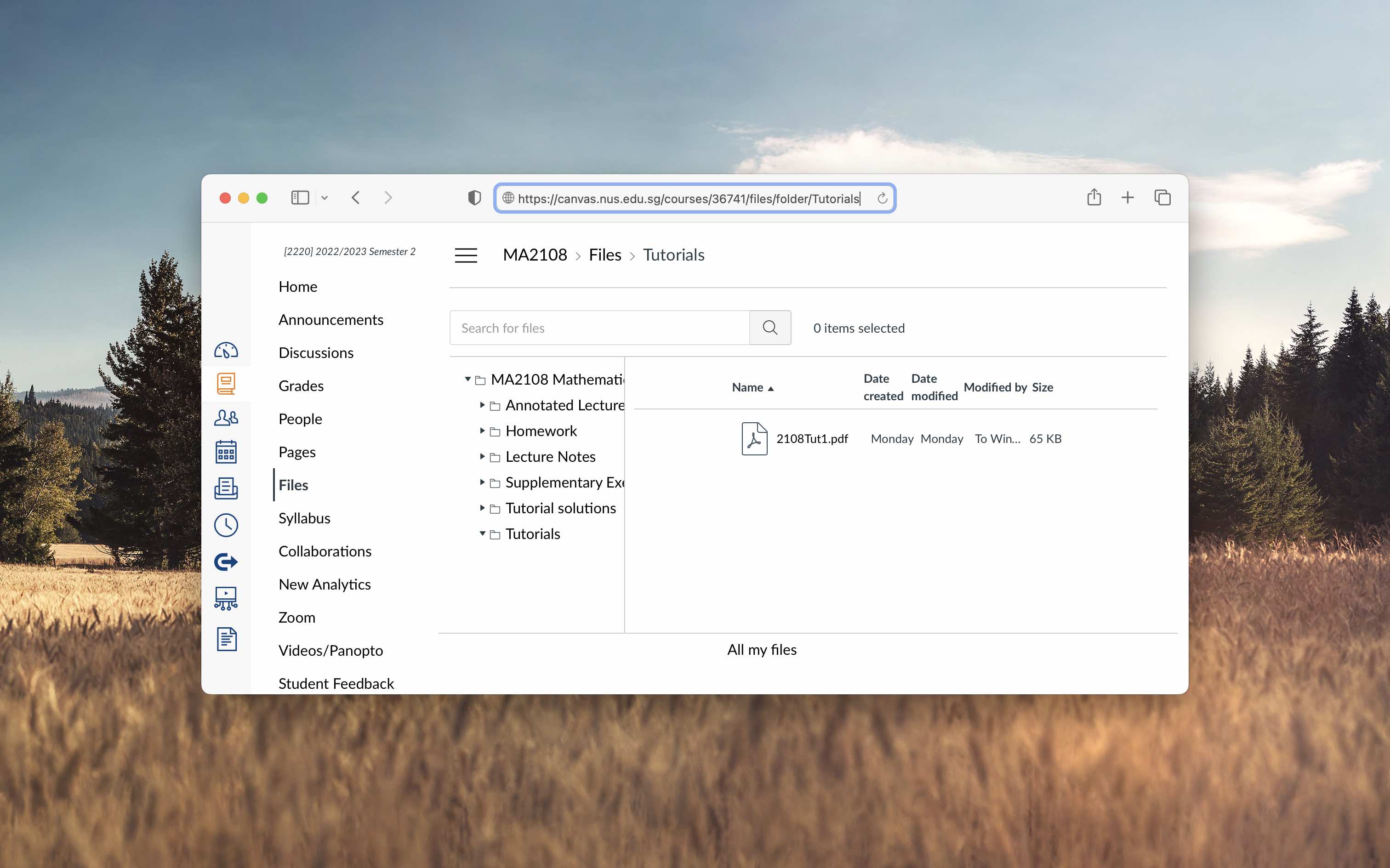
A barebones CLI tool that keeps local folders up-to-date with online folders on Canvas.
Installing canvas-sync currently requires an installation of
cargo. To install cargo, follow these awesome
instructions. Once you have cargo installed, you can
now install canvas-sync with
sh
cargo install canvas-sync
Depending on your operating system, canvas-sync chooses a different
default configuration file location. To find out this location, run
canvas-sync config
If it doesn't exist, then create it and fill it in with this template:
accesstoken: averysecretvalue base_path: /path/to/your/base # optional folders: - url: "https://canvas.nus.edu.sg/courses/12345/files/folder/Lecture%20Notes" path: MA2101/lec - url: "https://canvas.nus.edu.sg/courses/98765/files/folder/Tutorials" path: MA2104/tut ```
access_token - this is what authenticates into canvas instead of
a username and password. This can be found at your canvas profile
settings and looking
around for the 'token' keyword. Generate a fresh one and make sure
to save the token string to a safe location.
base_path - this is an optional parameter that will pre-pend all
other paths in your config. Leave this out of your config if you
want greater freedom in specifying each path. Otherwise, it's a
nice way to shorten all your other paths.
folders - this is an array of { url, path } objects. url points
to the folder on canvas that you want to track. path points to
the local directory on your computer that you want to be synced
with that folder online.
In each { url, path } object, is the page that each url should point to:

path will then track the contents of this folder.
Once you have specified your configuration, there
are a few commands that canvas-sync supports:
sh
canvas-sync # ping canvas servers to check if token is valid
canvas-sync fetch # fetch updates without downloading
canvas-sync pull # fetch and download updates
canvas-sync config # see where your config.yml is stored.
canvas-sync set-token <token> # set your token